Follow US:
[singlepic=352,220,,,right]Astronomers meeting in the Czech capital have voted to strip Pluto of its status as a planet.
2,500 odd scientists meet in Prague for the International Astronomical Union’s (IAU) general assembly, and rejected a proposal that would have seen Pluto retain its status as a proper planet.
Instead, Pluto has now been re-classed as one of the smaller ‘Dwarf Planets’. Which mean it will probably have to be removed from all those nice wall charts in the school class rooms around the world!
But why has it been demoted?
Even though Pluto was smaller than some of the moons in the Solar System, it was still the biggest known object in the Kuiper Belt, which allowed it the status of planet.
Then in 2003, UB313 was discovered, and found to be 3,00km (1,864 miles) in diameter, making it a little larger than Pluto.
So instead of making UB313 another planet – both have now been classed “plutons” (Pluto-like objects), or to put it another way – icy “Dwarf Planets”.
Related Links:
The International Astronomical Union (IAU)
The IAU draft definition of “planet” and “plutons”
NASA – Pluto
Advertisements

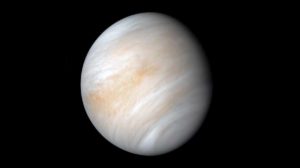
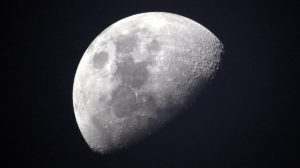
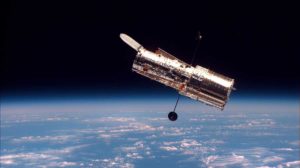
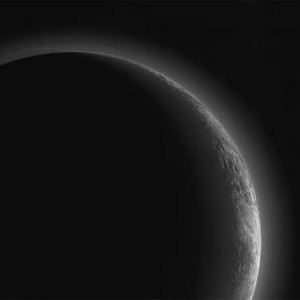
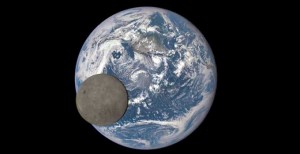
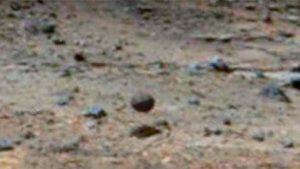
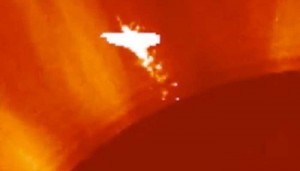



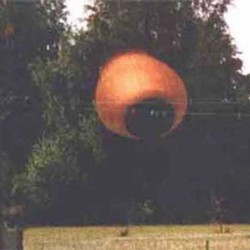
Unfortunately, the IAU committee is stuck between a rock and hard place. The public assumes that there should be a tight definition of what makes a planet and further assumes that the IAU has the responsibility to make that definition. The public also seems attached to the planet label for Pluto, which limits the range of options open to the IAU (given that they would not want to make a definition which brings public scorn upon them). At the same time, the IAU is a science organization, and they don’t want to do anything too crazy (I assume) in the eyes of astronomers. The result is the compromised, lawyerly language of the IAU proposal. I feel their pain…there is no good answer to “what defines a planet?” and yet they have been asked to make such a definition. Their big mistake was to agree to do so.
Sadly, in trying to satisfy divergent audiences, the IAU committee has written a definition that is too complicated to be useful to the public and which simultaneously lacks any scientific value. The proposal should be rejected on these and other grounds. The editors of the New York Times (2006 Aug 17) say this nicely.
——————————————————————————–
The Scientific Perspective
The properties of the Kuiper belt as uncovered over the last 14 yrs clearly show Pluto in its proper context as a large Kuiper Belt Object (KBO). There are many other objects with similar orbits and even a few other KBOs that are about the same size (2003 UB313 is the same size as Pluto within the uncertainties of measurement and there are many 1000km scale KBOs). So, Pluto is certainly a large KBO.
Scientifically, whether Pluto is also a planet is a non-issue. No scientific definition of planet-hood exists or is needed. Is that a boat or a ship? It doesn’t matter if you are using it to float across the ocean. Scientists are interested in learning about the origin of the Solar system, and setting up arbitrary definitions of planet-hood is of no help here.
What does make sense is to lump together similar objects and then to make scientific advances by comparing their properties as groups. In this sense, the Solar system divides into 3 Domains:
The Domain of the Rocky Planets:
4 rocky planets (Mercury, Venus, Earth, Mars) and the ring of debris in the asteroid belt
The Domain of the Giant Planets:
4 giant planets (Jupiter, Saturn, Uranus and Neptune)
The Domain of the Comets:
Oort cloud and Kuiper belt
A classification into groups like this has scientific merit because it distinguishes objects that are clearly very different and so points us to ask “why?”. The IAU proposal heads in this direction by separating “classical” planets from a big asteroid and from “Plutons” but then subverts itself by saying “but they’re all planets, anyway”.
——————————————————————————–
Reasons to Classify Pluto as a Planet
1) Nostalgia. It’s always been a planet. This is the often-mentioned “cultural” reason, although I don’t see the “cultural” component and, in any case, science respects data, not culture (if it doesn’t, we’re all finished!).
2) Politics. It is often asserted that Lowell Observatory in 1930 hyped Pluto as a planet in order to maximize the publicity from this discovery (e.g. see Dan Green’s discussion). Caltech has done much the same with regard to the discovery of 2003 UB313, although less consistently than Lowell Observatory. Other groups have self-interest of a different sort. If Pluto is not a planet, why did NASA spend 600M$ to send a spacecraft there under the impression that it was going to visit “the last planet”? (in fact there are reasons to do so, but they become harder to explain to a politician or an administrator if the planet label is lost and Pluto is just “one of the guys”).
Reasons to Not Classify Pluto as a Planet
Calling Pluto a planet opens a Pandora’s box of planets that clouds the real significance of the many and varied types of body we find in the Solar system. Do we really learn anything by lumping Pluto and its diminutive satellite Charon as planets together with the Earth and Jupiter? Methinks not.
Still my favorite comments about this whole fiasco are from Pluto itself.